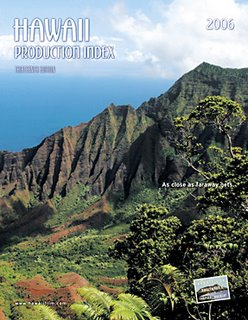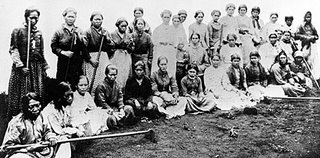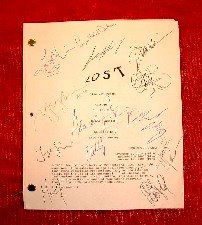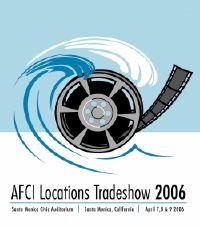Summary of Film Bill
What's next for this bill? The entire House and Senate will vote on it next week. If it passes (which is likely), it will be sent on to the Governor for her departments to review and make recommendations on the action she should take. She will have 90 days from the legislature's adjournment (May 4) to sign the bill into law or veto it.
OK, now for the summary you've all been salivating for (this should hopefully make up for me not having time to call you all back in a timely fashion):
- 15% rebate on all production expenditures incurred on Oahu that are subject to Hawaii general excise tax
- 20% rebate for same on neighbor islands
- Effective July 1, 2006 to December 31, 2015
- Must be a "qualified production," defined as: feature film, short film, TV movie, commercial, music video, interactive game, TV series pilot, single season (up to 22 episodes) of a TV series regularly filmed in the state (if the number of episodes per single season exceeds 22, additional episodes for the same season shall constitute a separate qualified production), TV special, single TV episode that is not part of a TV series regularly filmed or based in the state, national magazine show, or national talk show
- Each "qualified production" is subject to a per-production credit cap of $8 million
- Excluded productions: daily news; public affairs programs; non-national magazine or talk shows; televised sporting events or activities; productions that solicit funds; productions produced primarily for industrial, corporate, institutional, or other private purposes; and pornography
- Must have minimum Hawaii expenditure of $200K in "qualified production costs," defined as the following costs provided they are subject to Hawaii general excise tax: pre-production costs (location scouting, etc.); set construction and operations, purchases or rentals of wardrobe, props, accessories, food, office supplies, transportation, equipment, etc.; wages or salaries of cast, crew, and musicians; photography, sound synchronization, lighting, etc.; editing, visual effects, music, other post-production, etc.; location rentals and fees; vehicular and lodging rentals and fees; airfare for flights to/from Hawaii, interisland flights; insurance and bonding; shipping of equipment and supplies to/from Hawaii, interisland shipments
- Must provide screen credit to State of Hawaii
- Must show effort to hire local talent and crew
- Must provide evidence of financial or in-kind contributions or educational or workforce development efforts, in partnership with related local industry labor organizations, educational institutions, or both, toward the furtherance of the local film and television and digital media industries
- Cannot "double-dip" with the Act 221 investment tax credit
- Must register with Hawaii Film Office during development or pre-production to get pre-certified for credit
- After production wraps, must give detailed report of Hawaii expenditures and activity to Hawaii Film Office, which will then write a letter certifying the amount of the credits. This letter is to be filed with the Tax Dept. to process the rebate.
RELATED POSTS:
>> Film Bill Passed by Conference Committee!
>> Local Film Industry Says Film Bill Good (Go Figure)
>> Films Set in Hawaii Make Big Bucks
>> Hawaii as San Fran, NYC, UK, Oz, etc.
>> Hawaii Galore in Hollywood Reporter
>> Meet the Hawaii Film Office!
>> Meet the County Film Offices
>> Permits, Hawaiian Style




















